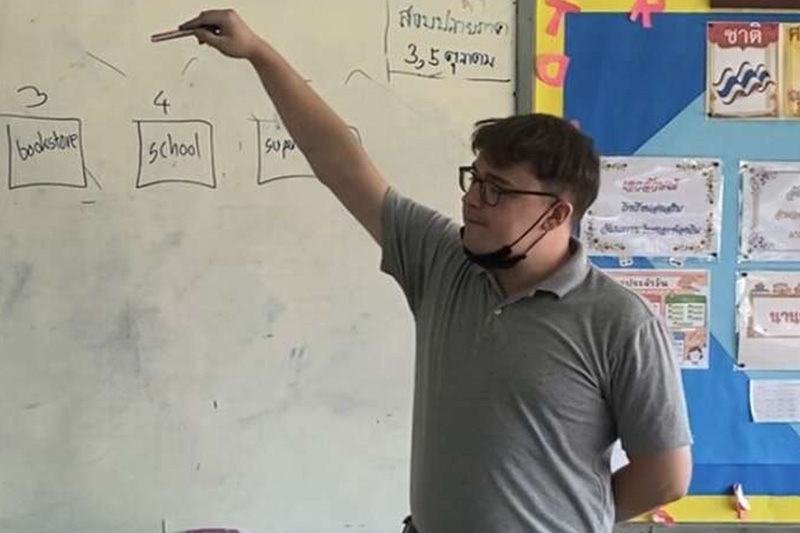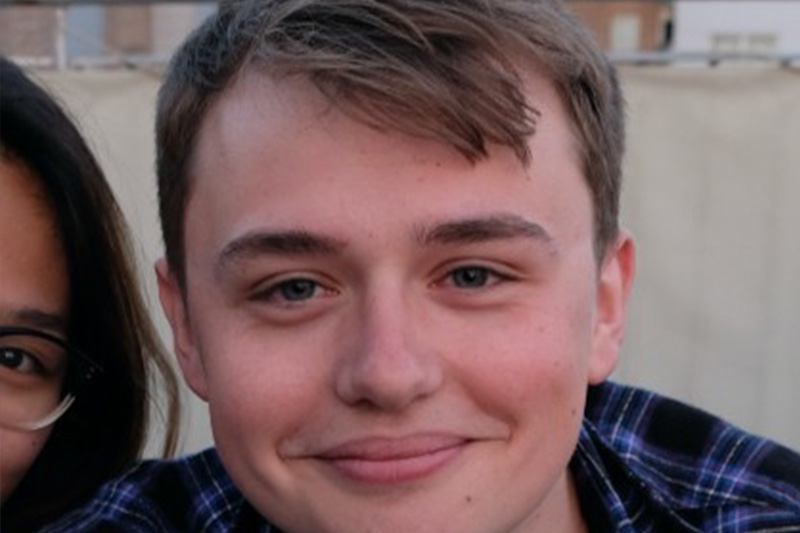How would you describe your experience studying at the University of Liverpool?
My time at the University of Liverpool was a whirlwind, overall positive, with a dash of COVID-induced chaos. Keeping academically motivated during a pandemic wasn’t easy but looking back I now fondly remember the unexpected gift of sitting in a tiny backyard in Smithdown waiting for a tiny period of sunshine each day.
What attracted you to the International Business programme and how did it meet your expectations?
I was intrigued by the programme because it promised something interesting, less “classic business” and more differentiation with certain modules like the "Capitalist Systems" module. That included a trip to Copenhagen in first year which was certainly an insightful time as it gave an opportunity to learn but to also bond with course mates.
Were there specific skills from the course that have proven particularly useful in your current role?
This may sound like a typical LinkedIn post, but the course taught me to see the bigger picture, the interplay of internal and external forces shaping a business. It’s a skill I use almost daily, and you can continuously ask why these impacts happen.
You participated in a summer school experience whilst studying - can you tell us more about that?
If I remember correctly, it was only around four weeks long and was a strange mix of the days going slow but the entire experience seeming very fast. It was my first taste of discussing academic and real-world topics with people from these countries. From making friends during the summer school, I now have contacts and sofas to crash if I’m in their respective country.
Can you share the journey that led you to Gotoco? What drew you to this position and to working in Thailand specifically?
Like many graduates, after finishing my degree I felt somewhat displaced after leaving the university bubble. I then began working a full-time job I had worked on and off since I was sixteen. My commute was only 5 minutes from my home, and I was working a volume of hours. I had a realisation that I wanted to make a change and came across a funded teaching English opportunity in Thailand. I applied, got accepted and a couple of weeks later found myself flying to Thailand to teach English for a year in a school near Bangkok. After my year of teaching, I applied for a programme coordinator role and then got to the point I am at now.

What responsibilities do you have as a Programme Manager and what does a typical day look like?
My main focus was managing the long-term Thailand programme that I had previously been a part of. On a typical day, I provided regular updates, responded to participant queries, and worked on projects aimed at developing the programme further. With two intakes per year, much of my time was spent planning the one-month orientation. This involved coordinating with partners to provide participants with teaching experience before starting their placements. Another key responsibility was interviewing candidates to ensure their motivations aligned with the programme’s professional development objectives. I also spent time this summer working on short-term camps in Hong Kong and Mainland China.
Can you share an example of a project that’s had a significant impact on communities or individuals? What made this project meaningful to you?
The best part of the programme was watching participants transform. They’d arrive unsure and leave with a renewed sense of direction, some heading into teaching careers back home, others carving unconventional paths. Seeing them embrace their potential was like watching the credits roll on a heart-warming movie.
What would you recommend for those considering working abroad? Are there specific skills or preparations that you found essential?
Flexibility and cultural understanding are essential. While cultural understanding develops over time, it’s important to recognise from the outset that business practices can vary greatly between countries.
How has working in an international context influenced your personal and professional growth?
It has given me a much broader perspective on the world, allowing me to compare different approaches and adopt the more effective ones while learning to appreciate others that, although can be considered less efficient, contribute to a more balanced and fulfilling life.
If you could go back and give your university self any piece of advice, what would it be?
Everyone has a unique story, and you never know when their skills or insights might become invaluable.
Looking ahead, what are your future plans or career goals?
I’m currently exploring new opportunities with the goal of eventually starting my own social enterprise to help people understand there are many different path goals of opportunity out there!
Back to: Alumni
